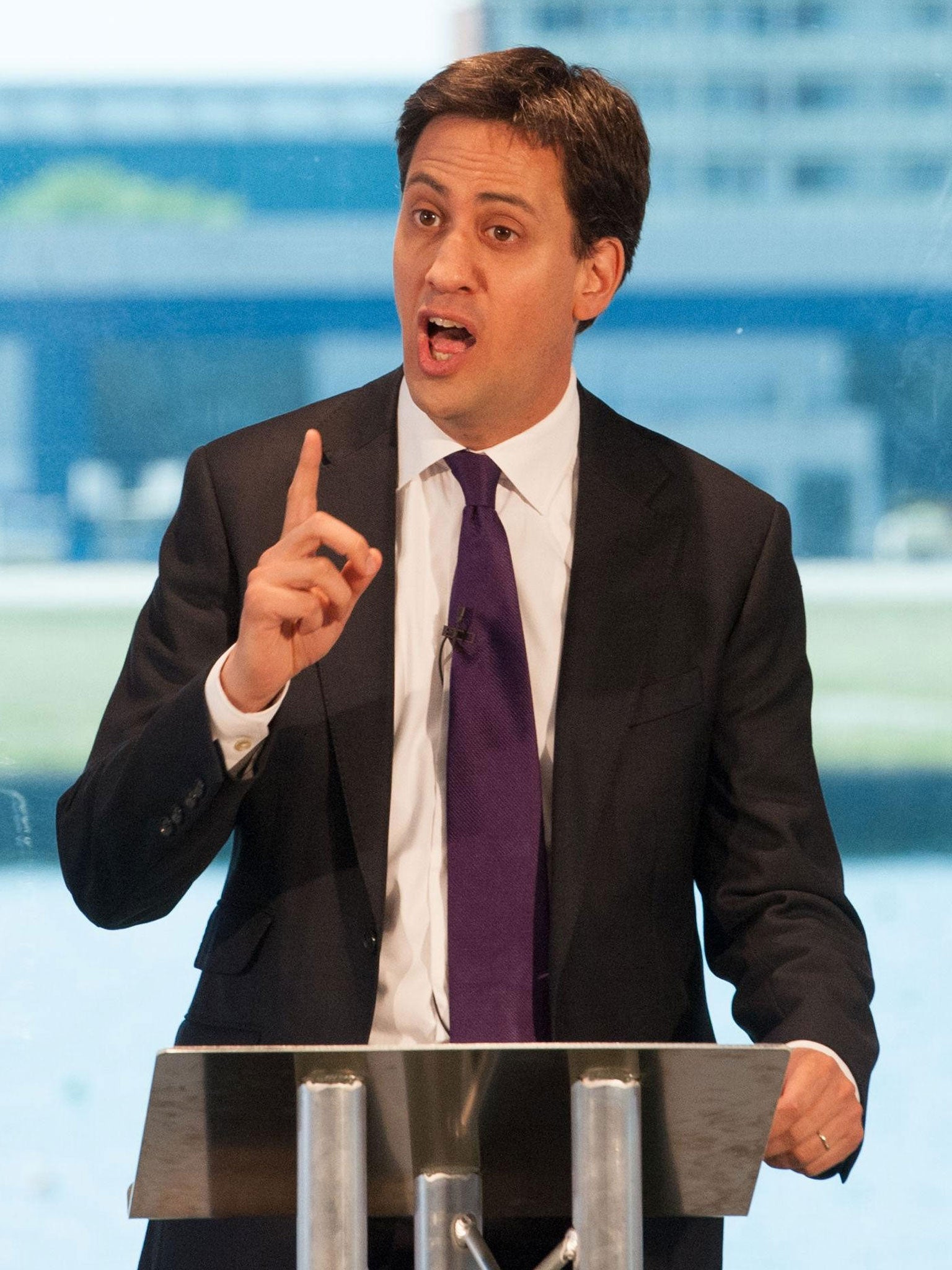Ed Miliband prepares to curb union power as polls show fall in Labour lead over Conservatives

Ed Miliband will this week unveil proposals to reduce the power of trade union bosses inside the Labour Party as he tries to regain the initiative in his battle with the country’s biggest union.
The pressure on Mr Miliband will be increased by The Independent’s latest poll of polls, which shows that Labour’s lead over the Conservatives has fallen from 13 to six points in the past four months. Mr Miliband’s personal ratings have dropped to their lowest since the spring of last year. These figures were compiled before the controversy with Unite and could get worse if the public regards Labour as divided.
However, Miliband allies believe he will emerge much stronger from his biggest crisis since becoming Labour. He will announce “bold” reforms to the party’s rulebook to give more rights and more say to the 3m affiliated union members who pay the political levy to the party. At present their voice is heard through leaders such as Len McCluskey, general secretary of Unite. He is embroiled in a war of words with Mr Miliband after police were called in to investigate allegations the union signed up about 100 party members in Falkirk, Scotland, some without their knowledge, to secure its favoured candidate as Labour’s standard-bearer at the 2015 election.
Mr Miliband will bring in a code of conduct for candidate selections in an attempt to stamp out such malpractice. There will be a campaign spending limit for would-be candidates, to prevent union-backed ones enjoying an advantage over others.
However, the Miliband reforms could disappoint Blairites as he is unlikely to reduce the unions’ 50 per cent share of the vote at Labour’s annual conference or their 33 per cent share of the electoral college which chooses the party’s leader, the same proportion as Labour MPs and individual members.
At present, union levy-payers must opt out if they do not want affiliation fees to go to Labour. One option would be for them to actively opt in, a move opposed by union leaders but supported by the Conservatives and Liberal Democrats. It is unclear whether Mr Miliband will go that far.
The Independent’s weighted average of the June polls by ComRes, ICM, Ipsos MORI and YouGov confirms that Labour’s lead has narrowed after Tory attacks over the economy, welfare and Europe. Labour is on 37 per cent, the Tories 31 per cent, the UK Independence Party 13 per cent, the Liberal Democrats 11 per cent and others eight per cent. Although that would still give Labour an overall majority at a general election, many Labour MPs believe the party needs a bigger cushion.
Mr Miliband’s net performance rating, the difference between the percentage of people thinking he is doing well or badly, has dropped to minus 33, his worst since April 2012. David Cameron’s rating, which has improved over the same period, is now at minus 17.
John Curtice, Professor of Politics at Strathclyde University, who compiled the poll of polls, said Labour has “cause for anxiety” because Mr Miliband’s ratings have slid and because the party’s recent announcements on the deficit have not yet enhanced its reputation for economic competence.
However, the Tories have little to cheer and are the principal loser of votes to Ukip, he suggested. “We continue to have very much the kind of environment in which Ukip could well continue to be able to prosper for quite a while yet,” he said.
Mr McCluskey accused Labour of playing into the Tories’ hands and urged Mr Miliband to “step back from the brink of a ruinous division.”
Join our commenting forum
Join thought-provoking conversations, follow other Independent readers and see their replies
Comments
Bookmark popover
Removed from bookmarks